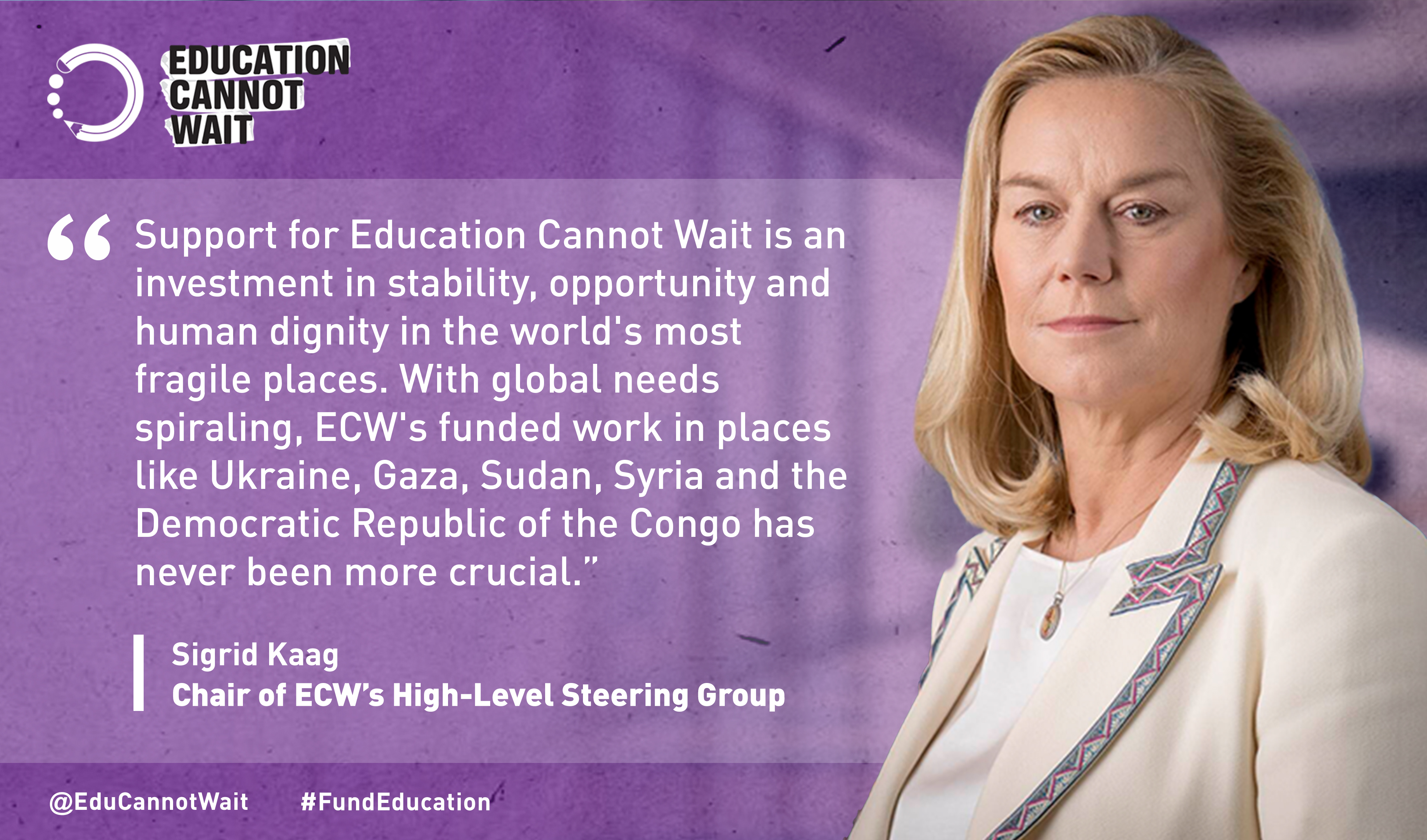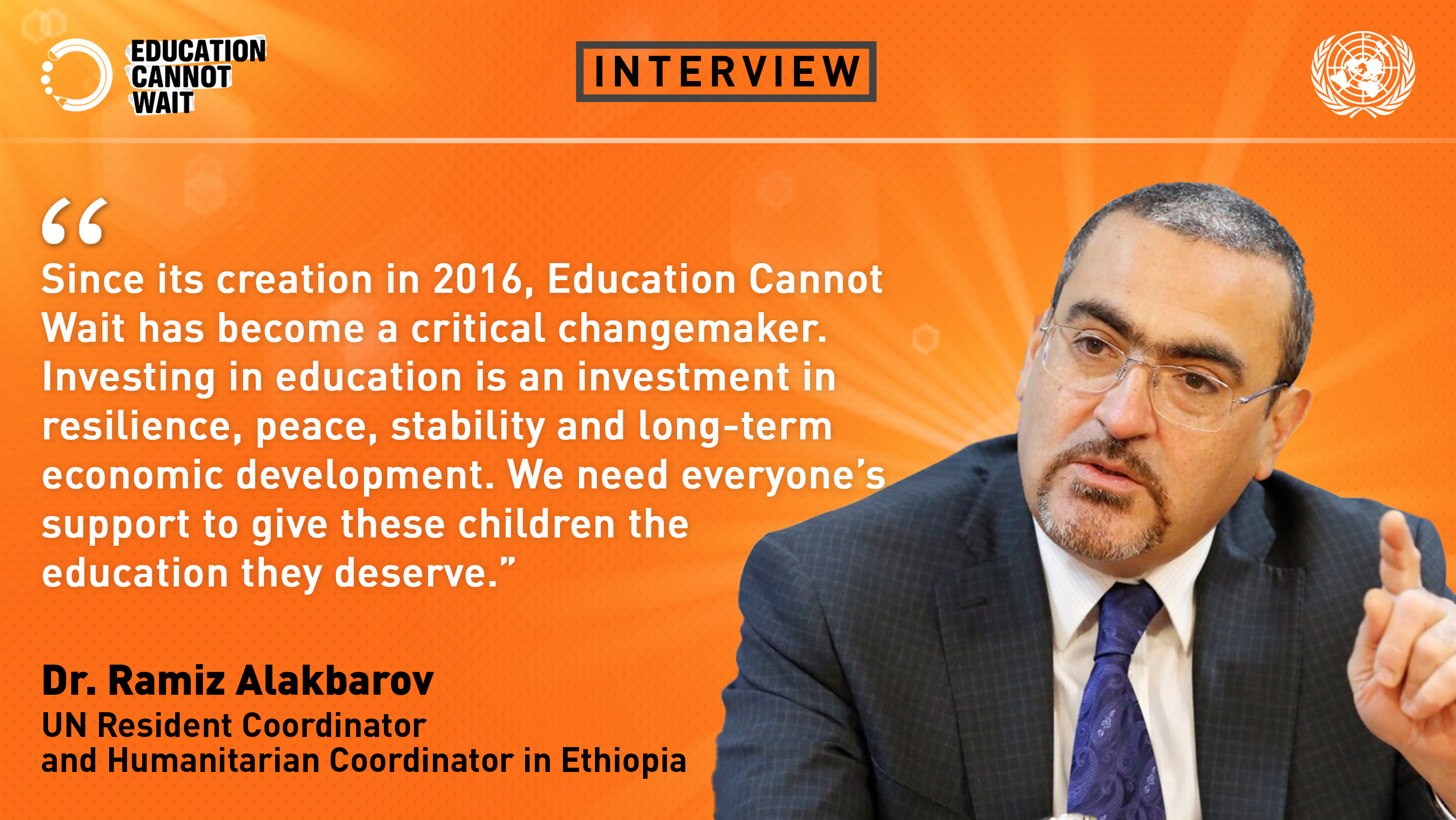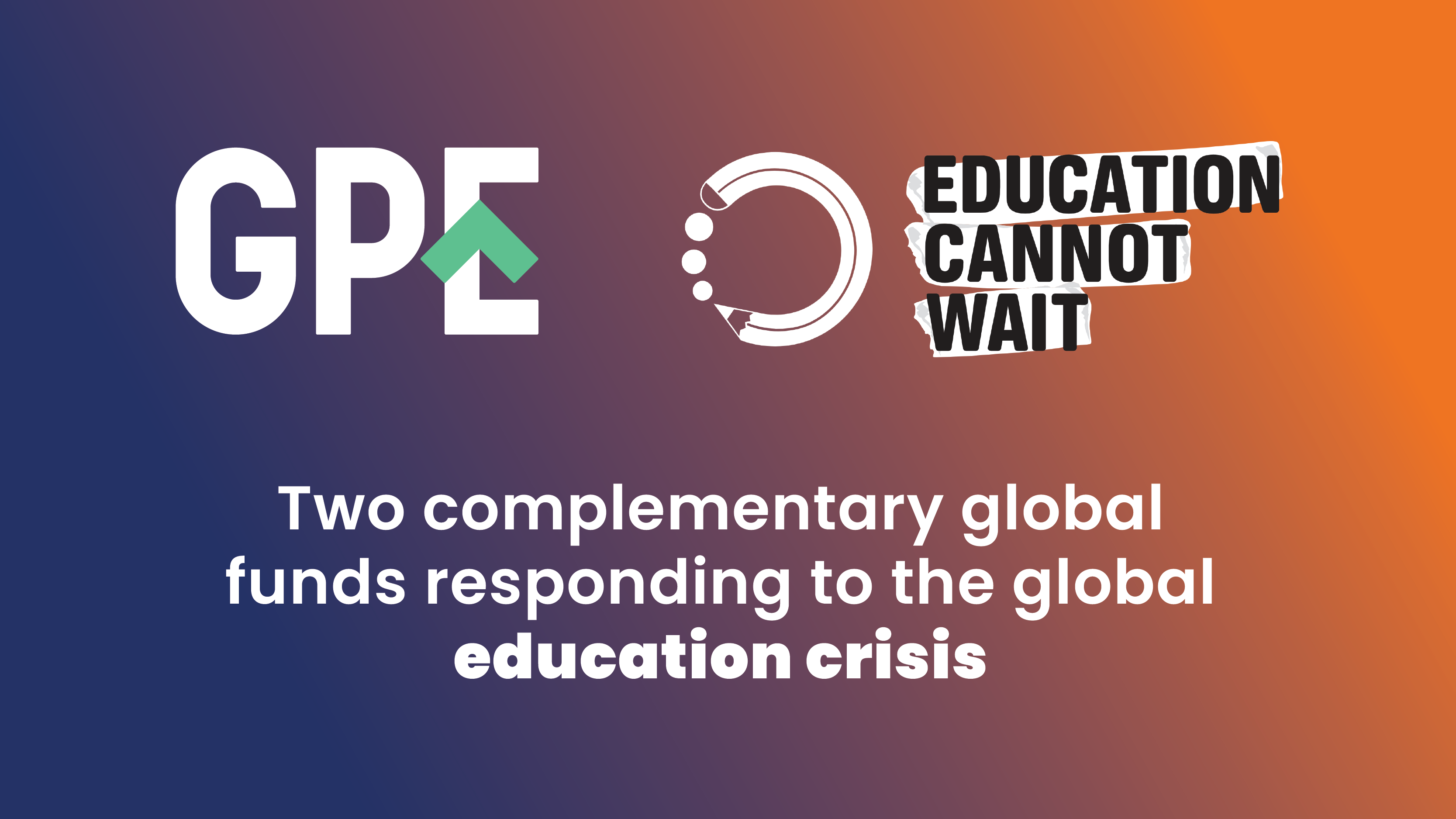ECW Interviews France’s Minister of State for Development and International Partnerships Chrysoula Zacharopoulou
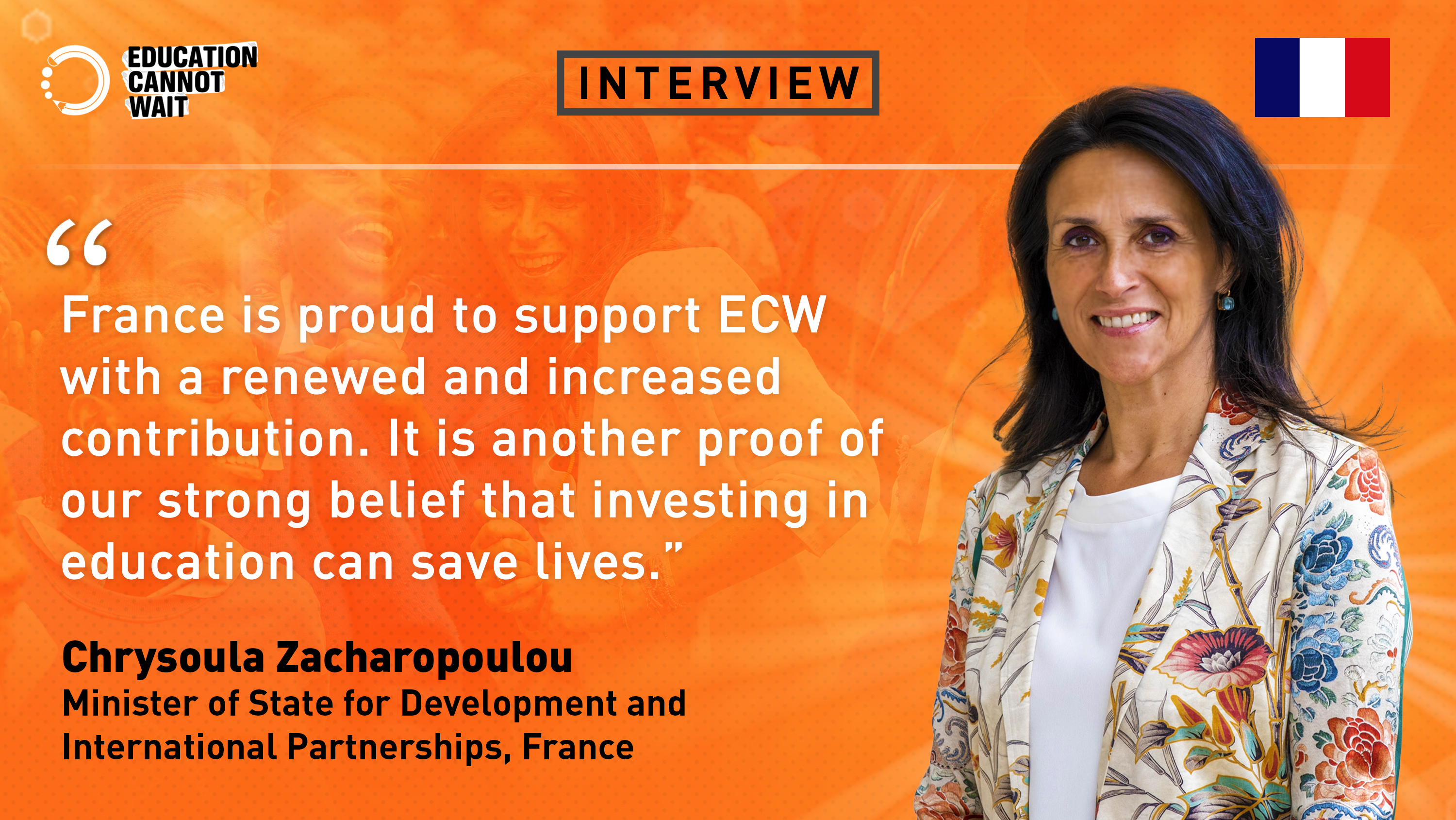
Chrysoula Zacharopoulou is a medical doctor. Born in Sparta (Greece) in 1976, she holds both French and Greek nationalities and is a graduate of Sapienza University in Rome, as well as holding a PhD on endometriosis. She arrived in France in 2007, practicing as a gynaecological surgeon at Bégin Military Hospital.
As a defender of the sexual and reproductive health and rights of women and girls, she founded the “Info-Endométriose” association alongside actor Julie Gayet. In 2016, she launched the first national awareness campaign about this little-known disease, aimed at both health professionals and the public.
She was elected to the European Parliament in 2019 and became a Vice-Chair of its Committee on Development. Ahead of the European Union-African Union Summit in Brussels, she was selected as the European Parliament’s rapporteur for the drafting of the new EU-Africa strategy, holding broad consultations in several African countries to produce tangible recommendations to build a lasting, inclusive partnership between the two continents.
As both an MEP and a doctor, she worked to ensure an inclusive international response to COVID-19. In April 2021, she was elected Co-Chair of the COVAX Facility Shareholders Council, which includes 65 countries, advocating for equitable access to vaccines and for stepping up vaccination campaigns for poor countries.
In the European Parliament, she also worked to defend the right of women and girls to make decisions governing their own bodies, to fight all forms of violence against them, and for an ambitious, feminist European foreign policy. She was appointed rapporteur for the third Action Plan on Gender Equality and Women’s Empowerment in External Relations (GAP III).
At the request of the President of the French Republic, Emmanuel Macron, she produced a report and proposals in 2021 in order to improve diagnosis and recognition of endometriosis and fully commit to research into the disease. This work, produced in consultation with all stakeholders, formed the basis of the first national strategy to fight endometriosis, of which she spearheaded the drafting.
In May 2022, Chrysoula Zacharopoulou was appointed Minister of State for Development, Francophonie and International Partnerships, attached to the Minister for Europe and Foreign Affairs. Chrysoula Zacharopoulou was appointed a Chevalier in the National Order of Merit in 2017.
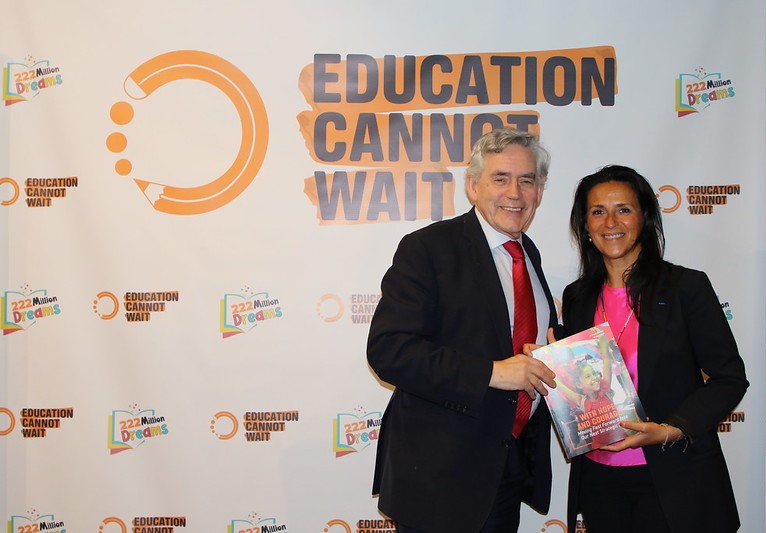
ECW: On behalf of France and President Macron, you recently announced €40 million in new additional funding to Education Cannot Wait. How does investing in ECW support France’s ‘Paris Pact for People and the Planet’ and why should other government donors support ECW’s work for crisis-affected girls and boys?
Chrysoula Zacharopoulou: France is proud to support ECW with a renewed and increased contribution. It is another proof of our strong belief that investing in education can save lives. In times of emergencies or enduring crises, schools can serve as safe spaces for people and shelters for progress. Education is a right for every child. These words need to be turned into action. With 10% of the budget of our development aid or humanitarian aid dedicated to SDG4, France is showing concrete commitment with €1.5 billion every year. We firmly believe that investing in education means investing in the achievement of the whole 2030 Agenda.
During tough crises, getting to school not only provides physical protection for many children: for some, it also represents a safety net for mental health, psycho-social protection or access to nutritious meals. This is particularly true for girls, who are more exposed to threats during hard times. Education Cannot Wait develops its holistic approach along these lines. This is why France supports ECW.
In the years to come, we commit to sustain these efforts for education. France is currently reviewing its international strategy for education: in this context, we particularly aim at providing access to quality, equitable and inclusive education, with a strong emphasis on teachers’ training and gender equality – including in emergencies and protracted crises.

ECW: ECW and our strategic donor partners are providing a strong advocacy push around Africa’s forgotten crises, through campaigns like our #FiveXFive Campaign in South Sudan. Why is it important and how can more funding be raised by both G7 nations and the private sector to deliver on our promise of education for all?
Chrysoula Zacharopoulou: It is absolutely essential that all crises (forgotten or not, in Africa and elsewhere), get the attention they deserve, in order to respond to the needs of the 224 million children and adolescents affected by wars, climate disasters and security threats around the world, and to achieve ECW’s strategic plan for 2023-2026. The mobilisation of the private sector alongside public efforts is a key to success. In this context, ECW’s advocacy and wide outreach can definitely play a pivotal role, and help raise more funds from the private sector through targeted fundraising campaigns.
As far as France is concerned, we have consistently supported these rapid response efforts. This is true for crises in Africa, as shown by our commitment in South Sudan (€41.3 million as of June 2023) and many other countries affected by crises through its bilateral and multilateral aid. But it also applies to other areas, such as Gaza recently. France has supported ECW’s recent proposal to allocate US$10 million via the First Emergency Response window to provide children in Gaza with safe and secure learning environments, as well as psycho-social and protection services including access to health, nutrition and food. It is perfectly aligned with the objectives set during the international conference on humanitarian aid for Gaza’s civilians held in Paris on 9 November 2023.
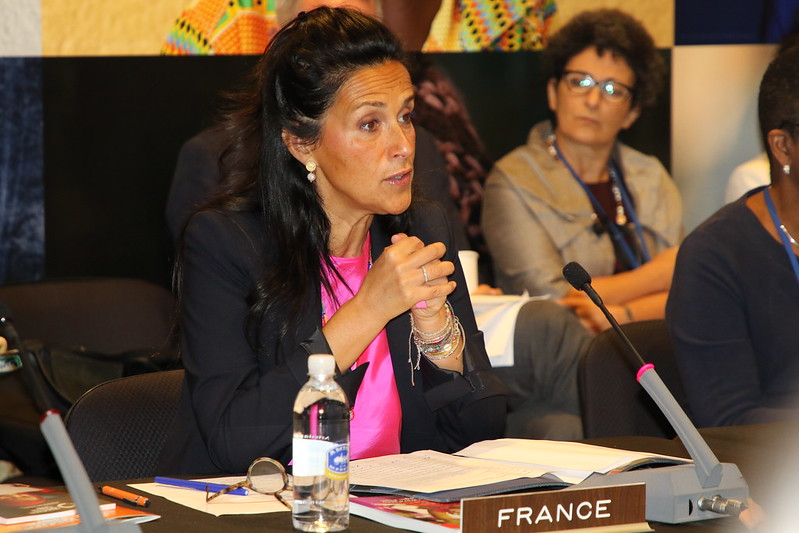
ECW: The world has fallen substantially behind on commitments and actions toward the Paris Agreement targets. How can education play a key role in scaling-up the ambition of national climate change adaptation and mitigation efforts and deliver on our goal of low-carbon, climate-resilient development?
Chrysoula Zacharopoulou: Education is a powerful lever for action and transformation in order to raise awareness of climate change, while helping to combat its consequences. On the one hand, we need to continue integrating climate education into teaching and learning at school, by adapting curricula and training teachers. On the other hand, the education systems can be transformed: efforts to set up more sustainable infrastructures and a "greener" extracurricular environment contribute to both mitigation and adaptation efforts.
ECW reports that some 62 million children and teenagers affected by climate risks are in desperate need of educational support. It is through education that we are likely to give young people the power to play an active role in ecological transitions. Schools can also be agents of change, through better integration of climate education into curricula or more sustainable infrastructures. ECW, through its support for young people and children affected by crises, therefore plays an essential role, given the financial requirements needed to address these issues. France will continue to support such initiatives.
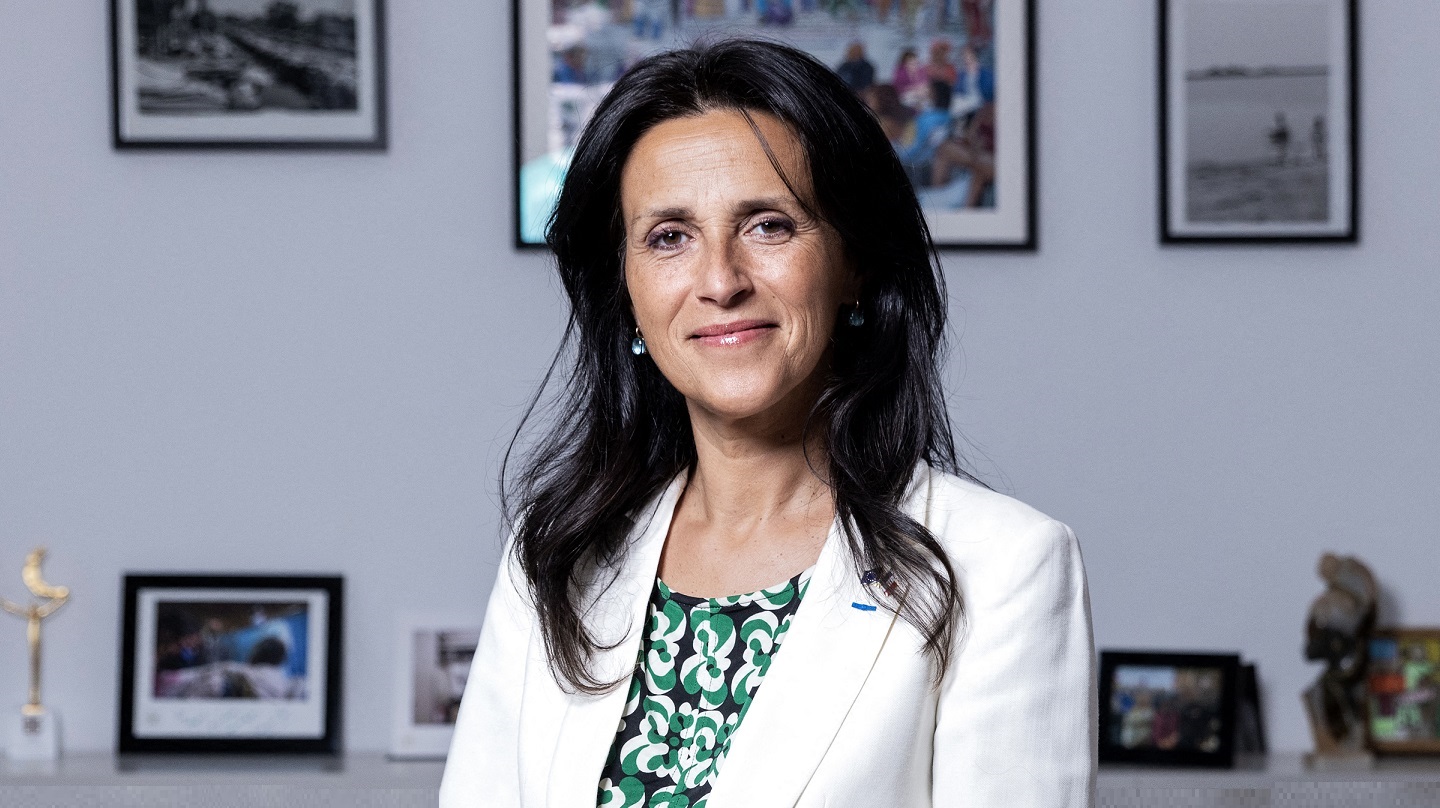
ECW: We all know that ‘leaders are readers’ and that reading skills are key to every child's education. What are three books that have most influenced you personally and/or professionally, and why would you recommend them to others?
Chrysoula Zacharopoulou: I was born and grew up in Greece, and studied and lived in Italy for 15 years before moving to France. The literary works that have most influenced me reflect the different stages of my life. 'Le petit navigateur', written by Odysseus Elytis is a collection of poetry in which I find the true light of Greece. The posthumous letter 'A Man' by Oriana Fellaci, an Italian journalist, who was Aléxandros Panagoúlis' companion until his death, was also a moving read. This Greek militant against the military regime of Geórgios Papadópoulos fought his whole life for the return of democracy in his homeland: Greece. During his imprisonment, he wrote his most beautiful poems and never gave up on his convictions. Alexandros Panagoúlis' life illustrates the resilience and determination that are the key to any long-term political commitment. I must mention Albert Camus' 'L'étranger', a novel that paints a complex character who suffers from his own detachment. It is Camus' writing, his ability to portray the complexity of human beings through a limpid style of writing, that I want to pay tribute to. Camus' clarity of expression and strong belief inspire me in my vision of diplomacy: effective and pragmatic, in order to set up concrete measures in response to the challenges of our time; but also with the people at its center.

